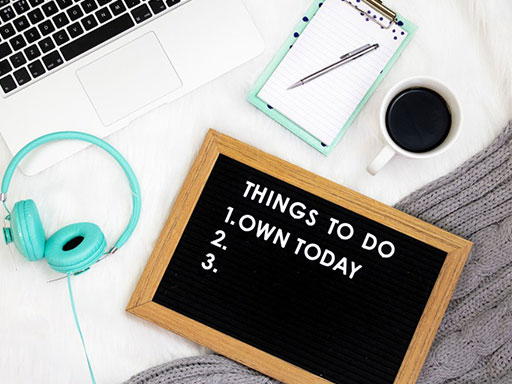Packing up and relocating is definitely a harried and trying event, but it doesn’t have to lead to a complete breakdown. Here are some of our tips for defeating moving stress.
Let’s not mince words: Moving is the worst. Surveys find that 6 out of 10 people rank moving as more stressful than starting a new job or even getting a divorce. Yes, you read that correctly: saying goodbye to your current life partner is easier than saying goodbye to your current home.
So if you’re having a meltdown of epic proportions, you’re not alone. Moving stress is real, and you can’t afford to let it take you out, especially when you’re still busy researching a new home, getting the kids registered for school, or packing.
Before you throw up your hands and retreat to the bathroom to try and force a relaxing bath (wine and chocolate included), here are some of our favorite strategies for keeping moving stress freakouts at bay.
Why Is Moving So Stressful?
Moving stress pops up for a number of reasons. As Bellhops points out, "time pressure, weighty decisions, the stress of looking for a new place and potential financial disturbances" all add to the overall feeling of pressure.
However, Bellhops continues, it may not be that simple: "When we live somewhere, four walls become transformed from just blueprints to a real place where you live. We become attached to these places because they aren’t just places, they’re the canvases that our memories are painted on. They become a part of us."
When you move, you’re not just leaving a home behind. You’re leaving a life behind, including people, jobs, parks, restaurants, favorite window seats, and more. All the emotional security that comes with a known environment and way of living is gone … and you have to create it anew.
Which, don’t worry, you will. In the meantime, though, you’ll have to find ways to cope with that very natural moving stress. Here are some of our favourites.
How to Reduce Moving Stress Today
Ready to kick moving stress in the behind? We’re here to help. First read through the following tips carefully, then incorporate one or two into your routine this week. If that works, try the rest of them. Before you know it, you might find yourself in stress-free territory!
Minimize Your Possessions NOW
Psychology has long recognized the link between clutter and anxiety, a link that workaday people intuitively understand when they look at a messy desk or a clothes-strewn bedroom. However you live normally, this pattern is destructive during a hectic relocation, and will only increase your moving stress.
You can counteract the effects of clutter by minimizing your possessions immediately. Go through room by room and separate every object you don’t want into four piles:
- Sell: If you think you can get money for it at a garage sale or on eBay, great!
- Give to friends and family: Know someone who would get use out of an item or who has long coveted it? Give it away.
- Donate: Don’t know anyone specific, but think the item still has worth? Donate it.
- Trash: If the item is useless, put it out with the trash or set it aside for the dump. Don’t make the understandable but unfair mistake of donating trash so that someone else has to deal with it, though.
Do this before you break out boxes and storage containers that just add to the mess. That just makes it harder to see the forest for the trees. Bonus: If you minimize enough before your move, you may set up a habit of living minimally every day!
Pack and Plan Safely
Worrying about the safety of your children, pets or possessions is no way to reduce moving stress. You can counteract safety concerns and moving stress with these tips for moving day, including:
- Don’t overpack boxes
- Use bubble wrap for breakable items
- Don’t stack heavy items too high
- Remove light bulbs and lampshades
- Remove batteries and wires
- Keep walking spaces clear
You should also plan ahead on what you’ll do with your pets or children on moving day. The best option would be to take your pets and children to a family member’s or friend’s home if possible. If not, you’ll want to be sure to give your children their own space to wait out the move, reducing the chances they’ll get injured or cause any other moving da mishaps. If your pets will be in the home while you move, inform our movers that you have pets and which rooms they’ll be in.
Practice Gratitude
Before you roll your eyes and dismiss this one, stop for a minute and consider the fact that research actually shows that expressing gratitude makes you happier.
"In positive psychology research," says Harvard Health, "gratitude is strongly and consistently associated with greater happiness. Gratitude helps people feel more positive emotions, relish good experiences, improve their health, deal with adversity and build strong relationships."
Right now, you can use all the positive relationships, good health, and resilience to adversity that you can get. If you want to reduce moving stress, all you have to do is pull out a journal and take a minute each day to write down three things for which you are grateful. You might be surprised by how big an impact on moving stress this simple practice can have.
Give Yourself a Break
No matter how hard you work and how many mantras you say, moving stress is still a reality. Eventually, you need to give yourself some downtime. If you have significant other, children or pets, make sure you spend quality time with them each day.
At the end of the evening, put packing lists and boxes aside and turn off your brain with a good novel or some brainless television. If you enjoy the occasional binge of Trailer Park Boys or Heartland, you’re in good company – and deserve to enjoy it for a bit.
Get Your Storage Unit Ahead of Time
Moving long distance? Moving temporarily? Moving into a smaller home than you have now? Then chances are good at least some of your moving stress is stemming from uncertainty about what to do with your current possessions.
Time to consider a storage unit. This is the perfect place to keep a lot of those special possessions that you can’t take with you but don’t want to get rid of either. Maybe you bring them to your new home later, once you settle, or maybe you just want to keep them safe until you get back. Either way, make sure you find a high-quality storage unit well ahead of time to avoid adding to your stress!























